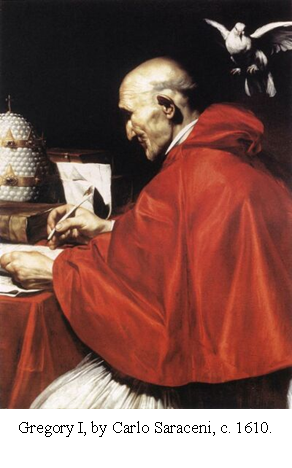Proclaiming the Gospel with Miraculous Gifts in the Postbiblical Early Church
Augustine had a practice of requiring all who had experienced miracles to make both oral and written testimony, so those who had heard would not forget, and those who had never heard would be made aware of God’s power. He also takes his own advice by reporting a variety of contemporary miracles.
Whenever a miracle occurred it was Augustine’s practice to mediate the event to the people. This was so that they would understand completely what had happened, so they would not forget, and so that God would receive the glory, rather than the priest.
Augustine insists that true gifts will bear examination. He even suggests a test to determine whether the spirit is of God: “Therefore by this understand ye the spirit that is from God. Give the earthen vessels a tap, put them to the proof, whether haply they be cracked and give a dull sound; see whether they ring full and clear, see whether charity be there”18 (cf. Mat. 7:20). Furthermore, Augustine warns against the notion that a spiritual work must be accompanied by external proof: “God forbid that our heart should be tempted by this faithlessness.”19
Augustine had a practice of requiring all who had experienced miracles to make both oral and written testimony, so those who had heard would not forget, and those who had never heard would be made aware of God’s power.
One can speculate that, in specifically denying glossolalia, Augustine might have been reacting against contemporary enthusiasts of whom we have no historic record. And it is equally significant that he can point to no scriptural passage which demonstrates his assertion regarding the gift of tongues.
Gregory the Great (540?-604): Recorder of Contemporary Miracles
 Gregory the Great, the fourth and last of the traditional Latin “Doctors of the Church,” became Pope in 590. His Four Books of Dialogues on the Life and Miracles of the Italian Fathers and on the Immortality of Souls (593-94) simplified the doctrines expressed in Augustine’s The City of God, and was highly influential during the Middle Ages. This work was composed for the single purpose of recording miracles performed by Italian saints in his own time. He understood that miracles were necessary in the Early Church to accomplish the work of evangelism. So too they were necessary in his own time for the conversion of pagans as well as the Lombard heretics. They also were probably intended to deepen the faith of those who were already baptized Christians. While Gregory admits that miracles, with the exception of visions, were not as frequent as they had been in the first century because the number of the faithful had grown considerably, miracles were still a constant of Christian experience.21
Gregory the Great, the fourth and last of the traditional Latin “Doctors of the Church,” became Pope in 590. His Four Books of Dialogues on the Life and Miracles of the Italian Fathers and on the Immortality of Souls (593-94) simplified the doctrines expressed in Augustine’s The City of God, and was highly influential during the Middle Ages. This work was composed for the single purpose of recording miracles performed by Italian saints in his own time. He understood that miracles were necessary in the Early Church to accomplish the work of evangelism. So too they were necessary in his own time for the conversion of pagans as well as the Lombard heretics. They also were probably intended to deepen the faith of those who were already baptized Christians. While Gregory admits that miracles, with the exception of visions, were not as frequent as they had been in the first century because the number of the faithful had grown considerably, miracles were still a constant of Christian experience.21
Category: Church History, Summer 2008


